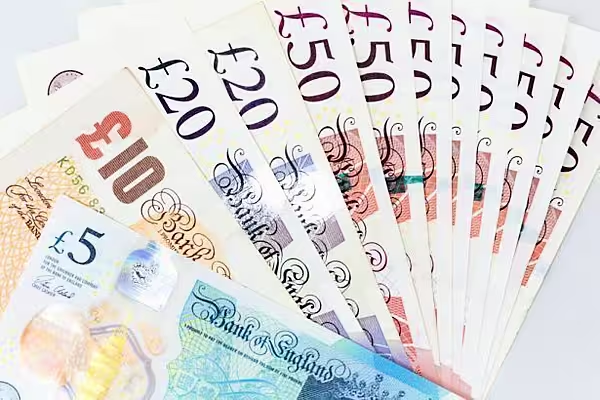British inflation fell more in February than economists and the Bank of England (BoE) had expected, it was reported this morning.
Cooling inflation may pave the way for the BoE to cut interest rates from their 16-year high of 5.25%.
The BoE has so far been reluctant to cut interest rates due to fears that factors such as rising wages could impact inflation.
Consumer Prices
Consumer prices rose by a weaker-than-expected 3.4% in annual terms in February.
This is a slowdown from 4% in January, and the lowest rate of inflation since September 2021 according to the Office for National Statistics.
The BoE’s forecast and a Reuters poll of economists had forecast an annual rate of 3.5%.
Prices of food and selling prices in eateries had the biggest impact in pulling the rate down. It was offset by upward contribution from motor fuels.
Core inflation, which excludes energy, food and tobacco also slowed to 4.5%, down from 5.1% in January.
The results were published just before the BoE’s rate setters are due to vote on borrowing costs. A decision is expected at 12 GMT today.
In response to the news, investors slightly increased bets that the BoE will start cutting interest rates in August.
‘Moving In Line’
Chief UK economist at Capital Economics Paul Dales said, “Inflation is no more persistent than the BoE expected and is moving in line with the path that the BoE has hinted would warrant interest rate cuts.”
The BoE and the Office for Budget Responsibility expect inflation – which peaked at 11% in October 2022 – to fall to the bank’s 2% target in the coming months.
The news will be welcomed by UK Prime Minister Rishi Sunak ahead of a national election this year.
With the Conservative Party lagging in popularity, Sunak had hoped to take credit for more than halving inflation.
However, opinion polls have failed to indicate a boost for him so far.
The Labour Party said prices were still high and that people were worse off after 14 years of Conservative government.
Read More: UK Consumer Morale Falls Unexpectedly In February – GfK





